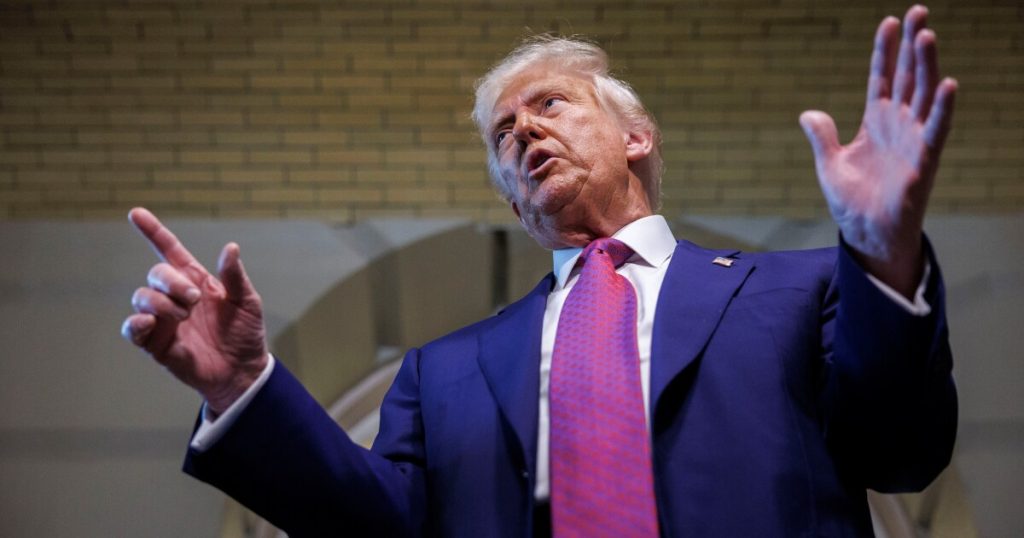WASHINGTON — The Trump administration upped its
President Donald Trump once again took aim at two of the country’s largest banks,
“The banks discriminated against me very badly,” Trump said during a Tuesday interview on CNBC, claiming that
Just twelve hours earlier,
The executive order and Trump’s comments mark an escalation in the way that the Trump administration is talking about debanking as an issue, experts say.
“If I was a banker, I would be very concerned about this, because you are trying to make business decisions based on what is best for your firm, and the government is coming here telling you how to run your business, how to spend your money,” said Todd Phillips, a bank law professor at Georgia State University.
Debanking has been a major issue for the Trump administration since the president took office in January. Days into his presidency,
The regulator responsibility narrative
Banks have publicly welcomed these changes, and have fought behind the scenes to keep the White House focused on the regulators rather than themselves.
“The heart of the problem is regulatory overreach and supervisory discretion,” said the Bank Policy Institute in a statement. “The banking agencies have already taken steps to address issues like reputational risk, and we’re hopeful that any forthcoming executive order will reinforce this progress by directing regulators to confront the flawed regulatory framework that gave rise to these concerns in the first place.”
Bankers continued to try and shift the narrative in that direction throughout the day.
“The president is after the right thing,” said
He added that his bank and others have been working with the administration to “get these rules balanced.” Moynihan cited guidance around anti-money laundering, Know Your Customer, reputational risk and the Bank Secrecy Act as some of the drivers of certain “decisions.”
“We don’t close accounts for political reasons, and we agree with President Trump that regulatory change is desperately needed,” said
Banks could take blame and blows
The executive order, as reported by the WSJ, would target banks directly and would order regulators to investigate allegations of debanking, potentially including consent orders or monetary penalties for banks that violate debanking rules.
Nick Anthony, a policy analyst at the Cato Institute’s Center for Monetary and Financial Alternatives, said in an interview that Trump’s Tuesday stance was “pretty aggressive” and “pretty confusing.”
“[Trump] said the banks were discriminating against him, personally, against his supporters, and then almost in the same breath, he was saying that he thought the government was the problem here,” Anthony said.
The first Trump administration tried a different version of this approach. The OCC proposed a
“I’ve been predicting this will be an issue, because while many of the earlier statements that have been made this year were ambiguous…there were still things like the
Some banks are already feeling some pain from the prospect of the executive order. On Tuesday, Piper Sandler downgraded Amalgamated Bank, a company known as one of the main banks for the Democratic party and Green Energy, due to concerns that it could be targeted by the Trump administration.
“Although we believe that Amalgamated is a very well-managed and profitable bank, when we downgraded the stock to Neutral in February of this year, we cited our concerns that due to the company being the bank of the Democratic Party and being a major player in the Green Energy space, it could see parts of its business pressured and regulatory scrutiny ramp up under the new Trump administration,” said Piper Sandler analyst Mark Fitzgibbon in a report.
